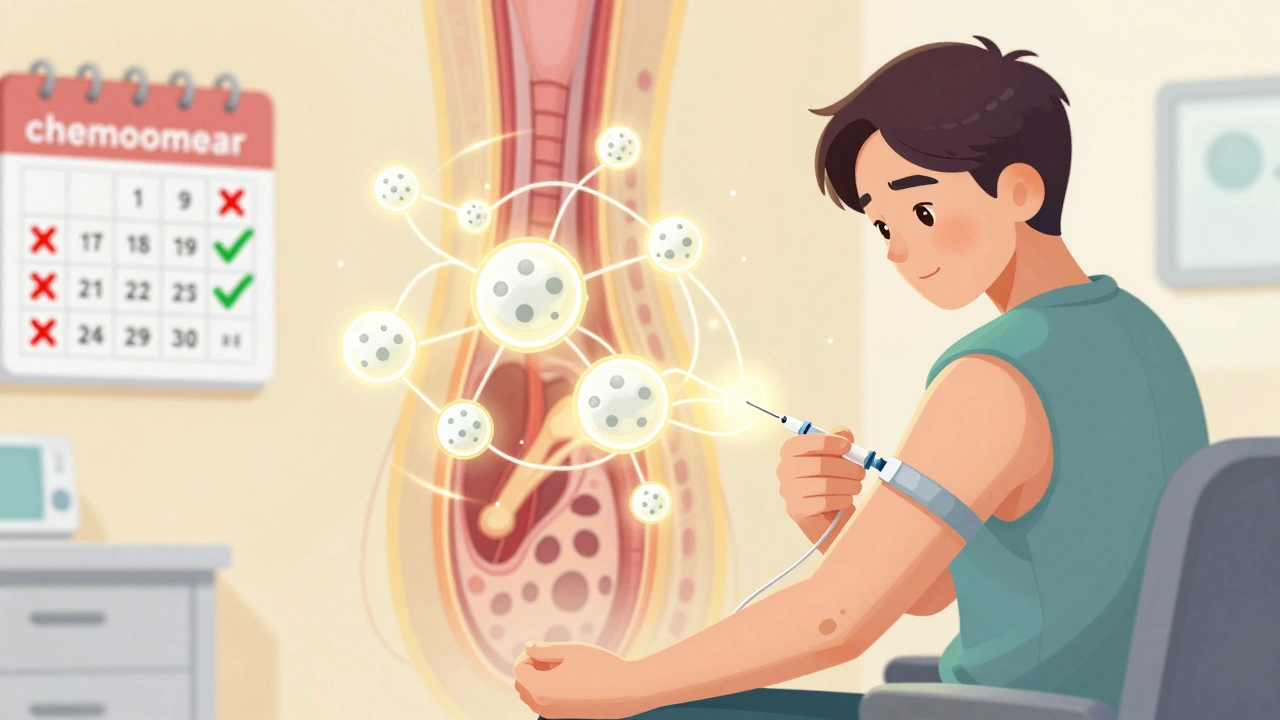When you’re undergoing chemotherapy, a treatment that uses drugs to kill cancer cells but also affects healthy cells. Also known as chemo, it’s one of the most common ways to fight cancer—but it doesn’t come without challenges. The goal is to stop cancer from spreading, but the side effects can feel just as overwhelming as the diagnosis itself. You’re not alone in feeling this way. Millions of people go through chemo every year, and while the drugs save lives, they also bring real, physical changes that can shake your daily routine.
Most people experience at least a few side effects. nausea, a feeling of sickness that can lead to vomiting is one of the most talked about, but modern anti-nausea meds have made it much easier to control. fatigue, extreme tiredness that doesn’t go away with rest is another big one—some patients say it feels like their body is running on empty for months. Then there’s hair loss, the visible, emotional impact of losing eyebrows, lashes, or head hair. It’s not just cosmetic; it changes how you see yourself. Other common issues include mouth sores, changes in taste, low blood counts that raise infection risk, and nerve pain that feels like tingling or burning in hands and feet. These aren’t random—they’re direct results of chemo targeting fast-growing cells, which includes not just cancer, but also hair follicles, gut lining, and bone marrow.
What most people don’t realize is that side effects aren’t the same for everyone. Two people on the same chemo drug can have totally different experiences. Your age, overall health, the type of cancer, and even your genetics play a role. That’s why tracking your symptoms matters. Writing down when you feel tired, what foods taste weird, or if your fingers go numb helps your care team adjust your treatment before things get worse. Some side effects, like low white blood cells, need immediate attention—you can’t wait until your next appointment. Others, like mild nausea, can be managed at home with small meals, ginger tea, or prescribed meds taken before chemo even starts.
The good news? Many side effects are temporary. Hair grows back. Energy returns. Taste comes back. But knowing what to expect and having a plan helps you stay in control. You don’t have to suffer in silence. There are proven ways to reduce discomfort, from cooling caps that help keep hair to special mouthwashes that prevent sores. And if something feels off—like a fever, trouble breathing, or sudden swelling—call your doctor right away. Chemo is tough, but it’s not a one-size-fits-all battle. The articles below break down real experiences, practical tips, and science-backed ways to handle the most common side effects so you can focus on healing, not just surviving.
Posted by
Paul Fletcher
11 Comments

Supportive care in cancer uses growth factors, antiemetics, and pain relief to manage treatment side effects, improve survival, and keep patients on track. Learn how these evidence-based tools work and why access remains unequal.
read morePosted by
Jenny Garner
11 Comments

Oral chemotherapy offers convenience but demands strict adherence and safety awareness. Learn how to manage side effects, avoid dangerous interactions, and stay on track with your treatment at home.
read more